Caring for Orphaned Wildlife
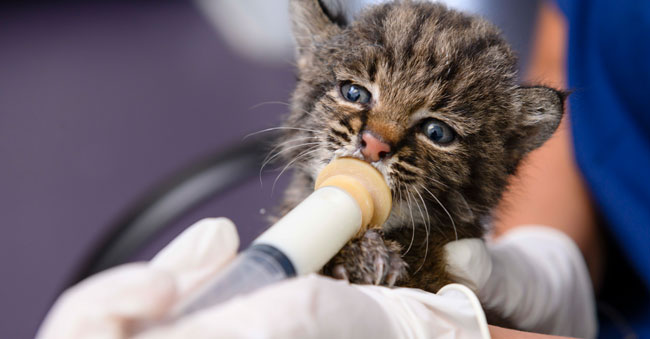
Georgia Southern Interns Learn the Ways of the Wild
Rescuing a baby raccoon from a trash can turned Alexis Neal into a wildlife rescue advocate.
A junior health science major on the Armstrong Campus, Neal saw a photo that someone had posted online of a baby raccoon in the Gamble Hall trash can.
“I was like, oh my goodness, somebody needs to do something,” said Neal.
So she called the Savannah Wildlife Rescue Center.
Jeanne Paddison, founder and executive director of the center, explained how to safely capture the baby raccoon, get it into a box and bring it to them.
“When I was dropping the baby raccoon off, I asked if it would be possible for me to volunteer and Jeanne said she’d be glad to have me on board,” said Neal.
Neal is now part of a growing group of Georgia Southern students volunteering with baby wildlife at the center.
The Savannah Wildlife Rescue Center is a certified wildlife rehab facility exclusively specializing in small mammals. Paddison relies on interns and relishes teaching them about wildlife care.
“We rescue, raise or rehabilitate and release orphaned baby wildlife,” said Paddison. “So the Georgia Southern interns are caring for, cleaning, feeding, medicating, treating and socializing all the wild animals that come through the front door. When they are ready, the animals return to the wild.”
Last year was the first year the internships were offered to Georgia Southern.
“I presented this to Georgia Southern and they just loved it,” said Paddison. “They put it out there to the kids and my phone began ringing off the hook.”
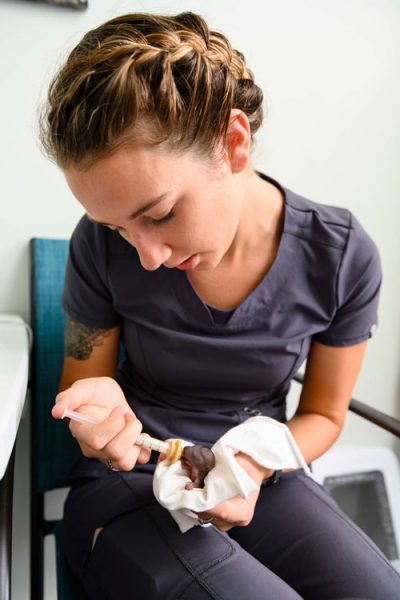
Caitlin Putnam 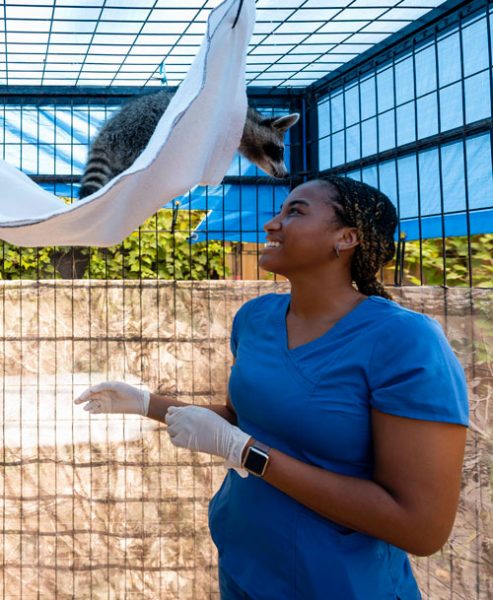
Arriana Sykes 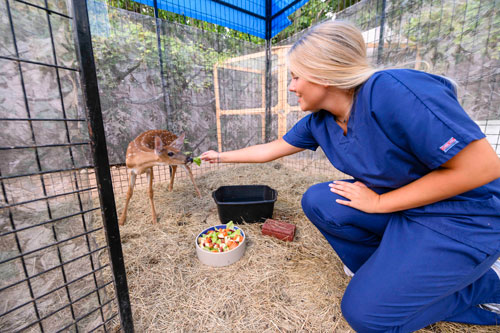
Morgan Myers
Learning So Much
The interns are learning wound management, vaccination, hydration protocol, nutritional maintenance and parasite control, among other skills. Many of the interns are biology majors studying pre-med or pre-vet.
“I can honestly say that it’s a different experience,” said senior biology major Arianna Sykes.
Sykes plans to become a veterinarian, and she thinks this internship puts animal care in a whole new light.
“You know it’s different from what’s normal in treating domesticated animals or farm animals. And the babies are so cute,” she said.
“I have learned so much,” said Morgan Myers, another biology major planning to become a veterinarian. “Just learning how to handle them. Not to be afraid of them just because they’re wild animals. And definitely patience. It takes a lot of patience.”
Caitlin Putnam is a senior biology major on the Armstrong Campus. She feels that as long as she’s living in Savannah she would love to keep interning at the center because of the environment and the learning opportunity.
“I have learned a lot generally about the nature of wild animals,” said Putnam. “Whether it’s cleaning their cages, giving vaccinations, how to approach a wild animal, how to properly clean and dress wounds and things like that. And that is all translating into experience. I would love to work for the National Park Service or Department of Natural Resources (DNR), and I think this is all working toward that goal.”
Neal recently learned how to feed a baby opossum, a very difficult and meticulous process.
“If something gets knocked in the wrong place, then you could potentially kill the ‘possum,” said Neal. “So things like that made me focus on attention to detail, to be careful with what you’re doing and always ask questions. Health science is also very meticulous, and what you are doing could possibly mean life or death for someone.”
Future Connections
Ashlyn Waite, a recent outdoor recreation graduate, eventually wants to go into wildlife management. She eagerly learned about the importance of raccoons and opossums and how they interact with the environment.
“A lot of people see ‘possums and raccoons as vermin,” said Waite. “But they actually provide a lot of positive impact for our environment by eating insects and ticks. Jeanie is really wise in her field and she’s certified through the DNR. Because I want to go into wildlife management, just having that connection provides a lot of positive things for my future. Now I work with Best Friends Animal Society in Atlanta. My clinic experience with Jeanie helped me get the job.”
And when you ask Paddison what she thinks about her Georgia Southern interns, she is full of compliments.
“They are just wonderful, because they have such a great work ethic,” she said. “I think it’s important that they get recognition for the hard work that they’re doing. They are truly an asset to our community.”
— Liz Walker
To learn more about Georgia Southern’s pre-health
programs, visit: cosm.GeorgiaSouthern.edu/prehealth
